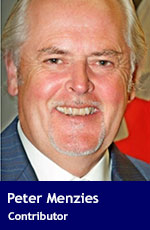 Commentators who dismiss the people governing Canada’s institutions as “patronage” or “fat-cat political” appointees aren’t wrong all the time but are wrong most of the time.
Commentators who dismiss the people governing Canada’s institutions as “patronage” or “fat-cat political” appointees aren’t wrong all the time but are wrong most of the time.
In my 10 years as – and let’s go with the full pejorative title here – “a fat-cat political patronage appointee,” I worked with people appointed by the government of Stephen Harper, the government of Paul Martin and the government of Justin Trudeau. Some were appointed by Martin and re-appointed by Harper, and while I never got to work at the Canadian Radio-television and Telecommunications Commission (CRTC) with any Harper appointees who were re-appointed by the Trudeau government, I’m aware that such creatures exist at other bodies.
Most of the people I worked with had no apparent history with political parties. Some did and their appointments were critiqued publicly, while the most unashamedly political seemed to escape scrutiny. The overwhelming majority, although obviously interested in political affairs and policy, displayed no allegiance one way or the other. And of the handful who did, almost all were no more nor less capable in their job because of it.
That’s largely because the job to which one is assigned is already fixed by legislation and order-in-council. The most influential of the latter during my terms, for instance, was the policy direction given by then-Industry minister Max Bernier, who instructed the CRTC to defer to market forces whenever possible when regulating telecommunications. (The notion of applying market forces within broadcasting policy was long ago abandoned.)
So most of what one is able to think in these positions is predetermined. In my early years as a regulatory naif, I would ask staff questions such as “Why do we do this?” only to be told “Because it’s in the Broadcasting Act.” I would then read the Broadcasting Act again and not find it there because, let’s face it, it’s pretty long on aspirations.
Eventually I learned that saying “Because it’s in the Broadcasting Act” was more fulsomely translated as “Because we’ve interpreted the Broadcasting Act in this manner” and really meant “Don’t worry your pretty little head about it.”
But worry my pretty little head I did.
And that’s why the most important feature of these positions is not by whom one has been appointed, how fat a cat one might be or to whom one might pay political allegiance. What does influence effectiveness is the extent to which one can bring a perspective to matters other than the one fairly universally shared by the tens of thousands of people who populate public institutions based in Ottawa-Gatineau.
Yes, among the many federal public appointees there have been, are and, alas, always will be those few who aspire to little more than business class tickets, canapes, martinis and being popular at parties.
But most actually seek to be useful and have been put in their positions to bring perspectives that may never have been heard, let alone thrive, within the public service.
It’s useful, for instance, when making decisions impacting publicly-traded companies to have people at the table who have worked within the same and understand how they and markets work. And it may be helpful to hear from one who understands how decisions impact entrepreneurial startups, a perspective to which bureaucracies might not normally be exposed.
It’s crucial to have strong and diverse voices that represent regional and other realities overseeing federal institutions. Appointees whose experience is restricted to the public service – and there have been enough of those of late to raise eyebrows – may be well qualified in terms of language skills, political neutrality and understanding of process, but add nothing capable of challenging the assumed intellectual superiority of the bureaucratic cognoscenti.
So beware the fat cats by all means. But the greatest threat to these institutions – whether they be the CRTC or the National Energy Board – and their ability to enhance the nation’s prosperity is far more likely to emanate from the subtle manipulations of mandarins.
Peter Menzies is a former newspaper publisher who served for 10 years as a CRTC commissioner.
Peter is a Troy Media Thought Leader. Why aren’t you?
The views, opinions and positions expressed by columnists and contributors are the author’s alone. They do not inherently or expressly reflect the views, opinions and/or positions of our publication.


